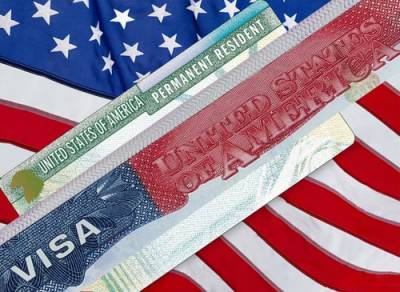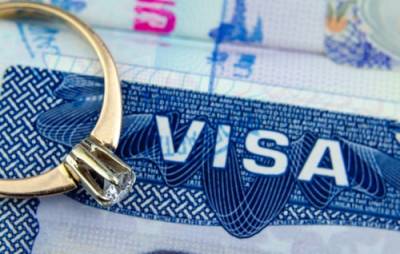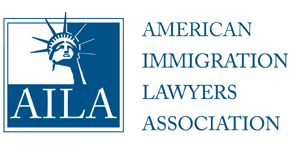Recent Blog Posts
Federal Court Rulings May Affect Deportation Cases
 During the administration of President Donald Trump, the government put a number of policies in place that affected immigration. In addition to its efforts to build a wall along the border between the U.S. and Mexico, the administration implemented rules that allowed for the detainment and deportation of many immigrants. President Joe Biden has pledged to relax some of these rules and take steps to address the issues affecting immigrants. However, his administration has had trouble doing so due to some recent rulings in federal courts.
During the administration of President Donald Trump, the government put a number of policies in place that affected immigration. In addition to its efforts to build a wall along the border between the U.S. and Mexico, the administration implemented rules that allowed for the detainment and deportation of many immigrants. President Joe Biden has pledged to relax some of these rules and take steps to address the issues affecting immigrants. However, his administration has had trouble doing so due to some recent rulings in federal courts.
Rulings Affecting Title 42 and Prosecutorial Discretion
During the Trump administration, a rule known as Title 42 was put in place, allowing for the expulsion of immigrants without going through many of the standard deportation procedures. This rule was implemented in response to the COVID-19 pandemic, and its stated purpose was to reduce the possibility of infections being spread by immigrants entering the United States.
How Can an Abuse Victim Receive a Green Card Through VAWA?
 There are many cases where immigrants to the United States may be at risk of harm, but they may be hesitant to report a crime or seek protection because they are concerned about their immigration status. In cases where immigrants are undocumented, entered the United States illegally, or stayed in the U.S. after the expiration of a temporary visa, they may worry that if they report domestic abuse or seek protection for themselves or their family members, they could face deportation. Fortunately, the United States has laws that provide protection in these situations. Under the Violence Against Women Act (VAWA), a victim of domestic violence or abuse may not only receive protection against deportation, but they may also qualify for a Green Card that will allow them to remain in the United States permanently.
There are many cases where immigrants to the United States may be at risk of harm, but they may be hesitant to report a crime or seek protection because they are concerned about their immigration status. In cases where immigrants are undocumented, entered the United States illegally, or stayed in the U.S. after the expiration of a temporary visa, they may worry that if they report domestic abuse or seek protection for themselves or their family members, they could face deportation. Fortunately, the United States has laws that provide protection in these situations. Under the Violence Against Women Act (VAWA), a victim of domestic violence or abuse may not only receive protection against deportation, but they may also qualify for a Green Card that will allow them to remain in the United States permanently.
Protection for Immigrant Crime Victims: U Visas and T Visas
 There are multiple situations where immigrants may be the victims of crime. Unfortunately, this often puts people in a difficult position, since they may be concerned that if they report these crimes or attempt to leave a situation where they or their family members are in danger, they could be detained by immigration officials and deported. However, the laws in the United States provide some protection for immigrants who are the victims of crimes, and depending on a person’s situation, different options for obtaining a visa or Green Card may be available.
There are multiple situations where immigrants may be the victims of crime. Unfortunately, this often puts people in a difficult position, since they may be concerned that if they report these crimes or attempt to leave a situation where they or their family members are in danger, they could be detained by immigration officials and deported. However, the laws in the United States provide some protection for immigrants who are the victims of crimes, and depending on a person’s situation, different options for obtaining a visa or Green Card may be available.
U Visas for Crime Victims
Immigrants in the United States who have been the victims of certain types of crimes may apply for a U visa that will protect them from deportation. A person will need to show that they have been the victim of qualifying criminal activity and that these crimes have caused them to suffer significant abuse of a physical or mental nature. Qualifying crimes include murder, manslaughter, domestic violence, stalking, felony assault, kidnapping, false imprisonment, sexual assault, prostitution, and incest, and these crimes must have taken place in the United States or violated U.S. laws. An applicant must cooperate with law enforcement officials during a criminal investigation or the prosecution of a crime.
What Is the Process Followed When Applying for a Fiancé Visa?
 Some of the most common avenues for immigration involve sponsorship by a person who is already living in the United States. Family-based immigration allows U.S. citizens or permanent residents with valid Green Cards to sponsor family members for immigrant visas. However, certain types of visas are also available that will allow U.S. citizens to establish family relationships and provide others with immigration benefits. Fiancé visas are one common way of doing so, and this type of visa will provide a foreign-born person with the right to enter the United States for the purpose of getting married to a U.S citizen. Couples who are planning to get married will need to understand the procedures that will be followed as they work to complete the immigration process.
Some of the most common avenues for immigration involve sponsorship by a person who is already living in the United States. Family-based immigration allows U.S. citizens or permanent residents with valid Green Cards to sponsor family members for immigrant visas. However, certain types of visas are also available that will allow U.S. citizens to establish family relationships and provide others with immigration benefits. Fiancé visas are one common way of doing so, and this type of visa will provide a foreign-born person with the right to enter the United States for the purpose of getting married to a U.S citizen. Couples who are planning to get married will need to understand the procedures that will be followed as they work to complete the immigration process.
Steps Followed When Bringing a Foreign Fiancé to the U.S.
Immigration Options for People Affected by the War in Ukraine
 Russia’s invasion of Ukraine has been devastating for people in the country, as well as Ukrainian citizens around the world. The U.N. is estimating that around 6.5 million people have been displaced from their homes inside Ukraine, and another 3.2 million have fled from the country. Because of the dangerous conditions in Ukraine, refugees who have fled the country are looking to ensure that they will be protected from harm, and Ukrainian citizens will likely want to avoid being forced to return to the country while the war is ongoing. Those who are looking to enter the United States or who are currently in the country will need to understand their immigration options and the protections that may be available.
Russia’s invasion of Ukraine has been devastating for people in the country, as well as Ukrainian citizens around the world. The U.N. is estimating that around 6.5 million people have been displaced from their homes inside Ukraine, and another 3.2 million have fled from the country. Because of the dangerous conditions in Ukraine, refugees who have fled the country are looking to ensure that they will be protected from harm, and Ukrainian citizens will likely want to avoid being forced to return to the country while the war is ongoing. Those who are looking to enter the United States or who are currently in the country will need to understand their immigration options and the protections that may be available.
Refugee and Asylum Protections for Ukrainians
Immigrants who have fled their home countries because they fear for their safety or believe that they will be subject to persecution based on factors such as race, religion, or membership in certain groups may seek to enter the United States as refugees. While the U.S. has only accepted a limited number of Ukrainian refugees so far, the Biden administration is looking to put plans in place to ensure that people who have fled the country will be able to resettle in the United States. Immigrants who have already entered the U.S. may be able to apply for asylum to ensure that they will be able to remain in the country.
How Can Accusations of Marriage Fraud Affect the Immigration Process?
 Immigrants who are looking to come to the United States or those who are already in the country and are seeking permanent resident status will need to meet many different requirements. The process of applying for a visa or Green Card can be complicated, and there are a variety of factors that may affect a person’s ability to enter or remain in the country. Claims that a person has committed marriage fraud can play a significant role in immigration cases, and immigrants and their family members will need to understand when these issues may arise and how they may be overcome.
Immigrants who are looking to come to the United States or those who are already in the country and are seeking permanent resident status will need to meet many different requirements. The process of applying for a visa or Green Card can be complicated, and there are a variety of factors that may affect a person’s ability to enter or remain in the country. Claims that a person has committed marriage fraud can play a significant role in immigration cases, and immigrants and their family members will need to understand when these issues may arise and how they may be overcome.
What Is Marriage Fraud?
Family-based immigration is one of the most common avenues that may provide a person with authorization to enter the United States and take steps to become a lawful permanent resident. A U.S. citizen may sponsor a foreign spouse for an immigrant visa, or they may apply for a fiancé visa on behalf of a foreign citizen, allowing the person to come to the United States, get married, and receive a conditional Green Card. However, a couple’s marriage must be bona fide, and a person cannot enter into a marriage for the purpose of bypassing immigration laws.
When Can Deportation Be Prevented Through Cancellation of Removal?
 For immigrants living in the United States, the threat of deportation is a significant concern. After a person has established a life for themselves and their family members in the U.S., being forced to leave the country is likely to cause significant hardship. Fortunately, those who are facing deportation may have options, and in some cases, a person may be able to apply for cancellation of removal. If a person meets certain requirements, deportation proceedings may be ended, and they will be allowed to remain in the United States.
For immigrants living in the United States, the threat of deportation is a significant concern. After a person has established a life for themselves and their family members in the U.S., being forced to leave the country is likely to cause significant hardship. Fortunately, those who are facing deportation may have options, and in some cases, a person may be able to apply for cancellation of removal. If a person meets certain requirements, deportation proceedings may be ended, and they will be allowed to remain in the United States.
Eligibility for Cancellation of Removal
The requirements for qualifying for cancellation of removal will differ depending on whether a person is a lawful permanent resident with a valid green card. A person may qualify for cancellation of removal if they have had lawful permanent resident status for at least five years, and they have accrued at least seven years of continuous residence in the United States. Lawful permanent residents may be disqualified from cancellation of removal if they have been convicted of an aggravated felony such as murder, sexual assault, drug trafficking, fraud involving at least $10,000, burglary, or bribery.
Financial Obligations for Sponsors in Family-Based Immigration Cases
 There are many situations where people living in the United States may want to sponsor their loved ones for family-based immigration. A U.S. citizen or lawful permanent resident with a valid Green Card may provide sponsorship for multiple different family members, including a spouse, children, parents, or siblings. However, when doing so, a person will need to meet certain requirements, including making a commitment to provide financial support for those who will be coming to the U.S. By understanding their obligations when sponsoring one or more family members for immigration, a person can avoid potential issues and ensure that they and their loved ones will be able to maintain financial success in the United States.
There are many situations where people living in the United States may want to sponsor their loved ones for family-based immigration. A U.S. citizen or lawful permanent resident with a valid Green Card may provide sponsorship for multiple different family members, including a spouse, children, parents, or siblings. However, when doing so, a person will need to meet certain requirements, including making a commitment to provide financial support for those who will be coming to the U.S. By understanding their obligations when sponsoring one or more family members for immigration, a person can avoid potential issues and ensure that they and their loved ones will be able to maintain financial success in the United States.
Filing an Affidavit of Support
When a person sponsors a family member for immigration, they will submit an application for the appropriate type of immigrant visa. Along with the visa application, the sponsor will usually be required to submit an Affidavit of Support (Form I-864). This affidavit functions as a legally enforceable contract stating that they have the necessary financial resources to provide for the immigrant’s needs and that they accept responsibility for supporting their family member once they enter the United States.
When Are Waivers of Inadmissibility Available to Immigrants?
 Immigrants who are hoping to live in the United States and those who are already present in the country may encounter a variety of issues that will affect their legal status and their ability to obtain the necessary visas or Green Cards. One issue that may arise during the immigration process involves inadmissibility, in which immigration officials determine that a person is not eligible to enter the U.S. Fortunately, this will not necessarily prevent a person from immigrating to the United States, and waivers of inadmissibility may be available in certain situations.
Immigrants who are hoping to live in the United States and those who are already present in the country may encounter a variety of issues that will affect their legal status and their ability to obtain the necessary visas or Green Cards. One issue that may arise during the immigration process involves inadmissibility, in which immigration officials determine that a person is not eligible to enter the U.S. Fortunately, this will not necessarily prevent a person from immigrating to the United States, and waivers of inadmissibility may be available in certain situations.
Applying for Waivers of Inadmissibility
While there are multiple reasons why a person may be inadmissible, waivers may be available if a person meets certain requirements. These requirements include:
- Inadmissibility for health-related reasons - If a person is inadmissible because they have been diagnosed with an infectious disease such as gonorrhea, syphilis, or leprosy, they may qualify for a waiver if they are the immediate relative of a U.S. citizen or Green Card holder or if they are applying for a visa under the Violence Against Women Act. A person who is inadmissible because they have not received required vaccinations may receive a waiver if they can provide evidence they are opposed to vaccinations because of sincerely-held religious beliefs. Those who are inadmissible due to physical or mental health disorders that are associated with harmful behavior may be able to receive a waiver if they can provide a complete medical history that includes findings about their current condition and details treatment that is available in the United States that is expected to reduce the likelihood of future harmful behavior.
When Can a Criminal Conviction Lead to Deportation?
 There are many different types of issues that can affect a person’s legal status as an immigrant to the United States. People who have entered the U.S. on an immigrant or non-immigrant visa or who have received a Green Card through adjustment of status may face deportation based on a number of factors, including certain types of criminal convictions. An experienced immigration attorney can help immigrants understand the types of convictions that may cause a person to be deported and the options for addressing these issues.
There are many different types of issues that can affect a person’s legal status as an immigrant to the United States. People who have entered the U.S. on an immigrant or non-immigrant visa or who have received a Green Card through adjustment of status may face deportation based on a number of factors, including certain types of criminal convictions. An experienced immigration attorney can help immigrants understand the types of convictions that may cause a person to be deported and the options for addressing these issues.
What Types of Crimes Make a Person Deportable?
Immigration laws are meant to protect the health and safety of those who live in the United States, and immigrants who commit offenses that may cause harm to other people may be subject to deportation. Some offenses will automatically lead to deportation, while others may lead immigration officials to detain a person and initiate removal proceedings because they believe that a person presents a risk of harm to others.



Contact Unzueta Law Group, P.C.
The use of the Internet or this form for communication with the firm or any individual member of the firm does not establish an attorney-client relationship. Confidential or time-sensitive information should not be sent through this form.
I have read and understand the Disclaimer and Privacy Policy.



